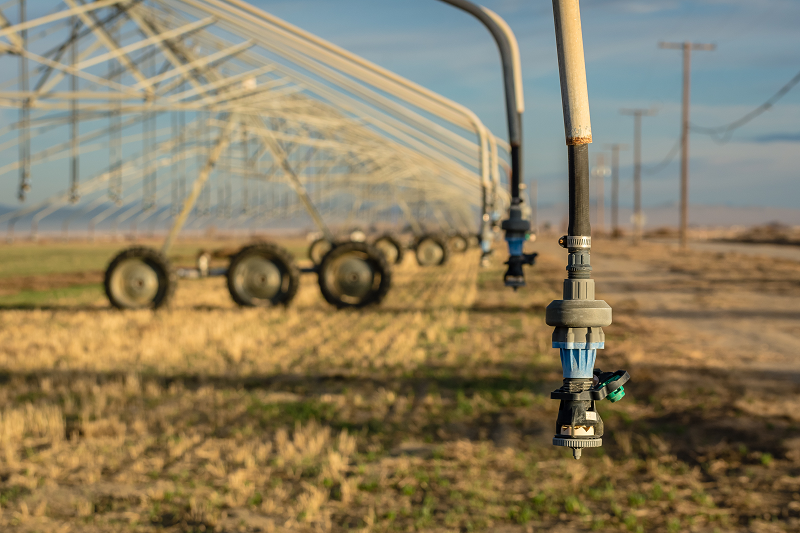
This article delves into the concept of Eco-Industrial Parks in the Republic of Moldova, their benefits, and the progress made in advancing sustainability within the country’s industrial landscape by exploring the creation of pilot EIPs in two regions.
17 June marks an important day to combat desertification and drought around the world. As droughts are among the greatest threats to sustainable development (especially in developing countries), forecasts estimate that by 2050, droughts may affect over 3/4 of the world’s population. This comes at a time when their number and length has increased by 29% since 2000, as compared to the two previous decades. In this sense, enterprises (be they individual or clustered in parks or economic zones) can take advantages of Circular Economy and resource efficiency-based measures to increase water recycling and reuse, reduce pollution and emission, and overall minimize resource consumption to prevent environmental degradation.
The past decade alone has revealed countries’ vulnerabilities to climate change and natural disasters. Amongst them is also the Republic of Moldova, a country with a unique biodiversity that is facing potential threats from climate change, habitat fragmentation, and over-exploitation. To counter these growing environmental concerns, the country and its leadership have continually demonstrated commitment to sustainable development, making remarkable strides in promoting sustainable practices across various sectors.
In this regard, one notable initiative has been the piloting of the Eco-Industrial Parks (EIPs) framework. Typically, Industrial Parks (IPs) are economic epicentres for industrial activities, creating jobs, attracting investments and growing the region’s economy. Upgrading these to EIPs helps create vibrant hubs that house sustainable industrial activities with a focus on 4 Ps: People, Products/Production, Premises, and Processes. Through the integration of sustainable activities, EIPs foster economic growth, while minimizing environmental and social impact, and improving the economic performance.
Eco-industrial parks are purposefully designed as industrial clusters or zones that aim to integrate economic activities with environmental and social sustainability. In other words, an EIP is a community of businesses located on a common property in which businesses seek to achieve enhanced environmental, economic and social performance through collaboration in managing environmental and resource issues. This is known as industrial symbiosis, which is a means by which companies can gain a competitive advantage through the physical exchange of materials, energy, water and by-products, thereby fostering inclusive and sustainable development
EIPs go beyond traditional industrial zones by adopting Resource Efficient and Cleaner Production (RECP) techniques, promoting waste reduction and recycling, minimizing energy, water and resource consumption, and encouraging the use of renewable energy sources. They provide an environment where industries can thrive while minimizing their carbon footprint and ecological degradation, all while balancing the social aspects and impacts of the workers in the zone as well as the neighbouring communities.
The Advantages of Eco-Industrial Parks

Investing in the creation of EIPs can help embed industries in society through the creation of shared economic opportunities, improved ecosystems, and innovative avenues for responsible business practices. Among their many benefits, EIPs also promote RECP practices and help bridge the gap between cities and industries by making a significant contribution to sustainable cities and the Sustainable Development Goals (SDGs). Some of their benefits include:
- Minimizing industry’s impact on the environment: EIPs prioritize sustainable practices, leading to reduced pollution, efficient resource use, and the protection of natural ecosystems. The International Framework for EIPs (developed by UNIDO, GIZ and World Bank) assesses environmental performance of parks and helps develop an action plan for reducing environmental impact to preserve the environment for future generations.
- Economic growth: By providing a conducive environment for sustainable industries, EIPs contribute to economic growth and job creation. They attract investments, enhance productivity, and foster innovation, thus boosting the overall competitiveness of the country. They also increase local skills and talents, valorise Small and Medium Enterprises (SMEs) and create growth opportunities for the region.
- Creating synergies and enhancing collaboration among businesses: EIPs encourage collaboration among various industries and stakeholders. By sharing resources, infrastructure, and knowledge, companies within the parks can create synergistic relationships, leading to increased efficiency and reduced costs.
- Using Circular Economy practices to create future-proofed industries: EIPs embrace the principles of Circular Economy through the promotion of waste elimination, source reduction (or replacement) of input materials, reuse and recycling of waste and by-products, as well as capturing all other sources of loss including heat/steam, energy, and emissions.
EIP progress in the Republic of Moldova
Over the last few years, Moldova has made significant strides in exploring EIPs as part of its sustainable development agenda. The two pilot IPs were offered to undertake concrete sustainability measures with the aim to create a balance between economic growth and environmental stewardship, thus becoming champions for the other IPs in the region.
The piloting and development of the international EIPs framework in Moldova is supported by the European Union funded, EU4Environment Action. Here, two designated industrial zones were selected as pilot sites for feasibility assessment as Eco-Industrial Parks (EIPs) using the UNIDO International framework for EIPs: Industrial Park (IP) Tracom, and Free Economic Zone (FEZ) Valkaneș. To achieve the goal of testing the EIP feasibility in Moldova and the EU’s Eastern Partnership (EaP) region, UNIDO engaged the International EIP experts from Sofies/dss+, as well as national experts.
Some of the key areas of improvement (high priority actions) are identified for both parks:
As the world and EaP region in particular further advance their sustainability path with an increased focus on the Environmental, Social and Governance (ESG) performance of industries, it is imperative that both companies and Industrial Parks/Clusters/Free Zones prioritise this issue and address it as an integral business value. In the case of Moldova, EIPs can be instrumental in driving sustainable development, fostering economic growth, and conserving the environment. By integrating ecological principles into industrial activities, these parks will serve as catalysts for a greener and more prosperous future for the country, as well as the region.





